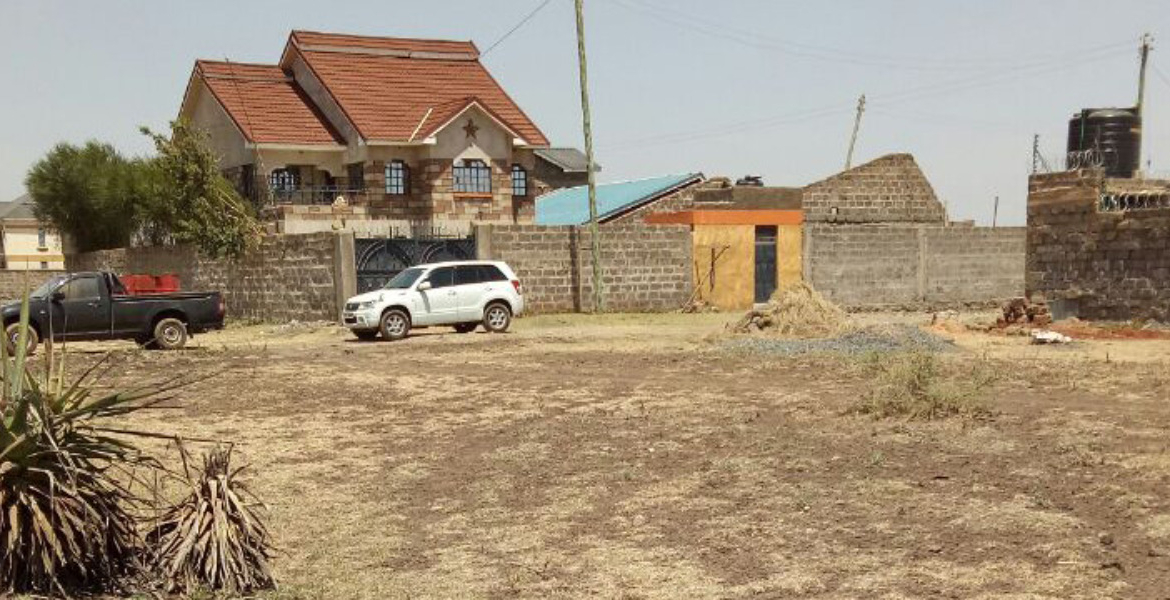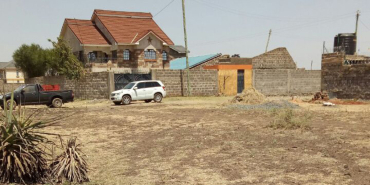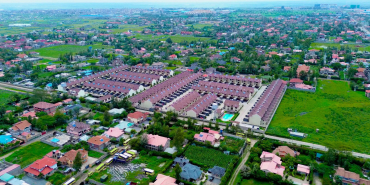Kenya’s Real Estate Sector Moves Online as Unlicensed Brokers Lose Ground

Kenya's real estate sector is currently undergoing a significant transformation, driven by technological advancements, stricter government regulation, and evolving consumer demands.
This shift is diminishing the influence of traditional, often unregulated, brokers, as transparency and formalised practices gain prominence in property transactions nationwide. The role of informal middlemen, historically central to connecting buyers, sellers, and landlords, is rapidly declining. Regulatory bodies, professional agencies, and digitised platforms are reshaping the sector, pushing aside brokers who previously operated outside established systems. This transformation addresses rising concerns about fraud and aims to foster greater trust and security in property dealings.
According to a 2023 report by the Kenya Property Developers Association (KPDA), a substantial 21 percent of real estate fraud cases involved unlicensed or fictitious agents. These instances, which include the sale of non-existent plots, the issuance of counterfeit title deeds, and the double allocation of land, have eroded public confidence and prompted both domestic and international buyers to seek more structured and reliable alternatives.
Professional firms, such as Famyard Enterprises Ltd, BuyRentKenya, VillaCare, and Hass Consult, are capitalising on this trend. These agencies offer comprehensive services that include legal due diligence, title verification, and transparent pricing, appealing to a market that increasingly values security and accountability. George Ndumia, director of Famyard Enterprises Ltd in Nyeri County, notes a shift in buyer behaviour.
"The modern buyer is informed, independent, and cautious," he explains. "They want verified listings, legal assurance, and digital convenience, things traditional brokers rarely offer."
His firm exemplifies how agencies are adapting to serve urban millennials and diaspora clients, the latter of whom have been particularly vulnerable to opaque transactions handled by family acquaintances or informal intermediaries.
Technology plays a pivotal role in this market recalibration. Digital property platforms are evolving from supplementary tools into primary gateways for real estate engagement. These platforms provide extensive listings with drone footage, geolocation filters, and verified seller credentials, enabling prospective buyers to browse, compare, and schedule viewings independently, bypassing unlicensed third parties.
Data from Google Kenya for 2024 confirms this behavioural shift. Searches for "plots for sale without agents" increased by 38 percent year-on-year, while queries about "how to verify land online" rose by 41 percent. This surge in online activity reflects a growing preference for autonomy and a marked distrust of undocumented brokerage.
Government reforms are further institutionalising these changes. The Ministry of Lands is implementing ArdhiSasa, an online framework for land management, to streamline processes and enhance transparency. This portal allows users to conduct land searches, initiate ownership transfers, and apply for leases and titles online. Lands Cabinet Secretary Alice Wahome has stated that by the end of 2024, over 70 percent of Nairobi's land records have been digitised, with similar progress noted in Kiambu, Kajiado, and Nakuru counties.
A key objective of ArdhiSasa is to eliminate "brokers at the lands office," a term used to describe individuals who solicit bribes in exchange for expediting document processing. By centralising records and streamlining verification, this digital infrastructure empowers licensed professionals to conduct transactions within a clearly defined legal framework.
Unregulated brokers have historically inflated property costs through ambiguous fees, including commissions ranging from five to ten percent, viewing charges, reservation levies, and facilitation costs for land surveys. These often unreceipted charges distort real estate values and burden unsuspecting buyers. For example, a plot in Kamakis, Ruiru, valued at KSh1.8 million may be priced as high as KSh2.1 million due to broker commissions and hidden fees.
In some cases, fraudulent agents have accepted deposits for non-existent properties and subsequently disappeared. In contrast, professional agencies document each stage of a transaction, ensuring that clients are fully informed about costs and the responsibilities of each party involved. Diaspora investment, previously reliant on relatives or informal proxies, is also undergoing transformation. Digital documentation and virtual property tours now allow Kenyans abroad to transact with greater confidence and reduced risk. Legal contracts, title verifications, and zoning assessments are increasingly managed by licensed firms that provide full online traceability.
Social media platforms are amplifying this shift, particularly among younger buyers. Real estate companies now utilise short-form video content on platforms such as TikTok, Instagram, and Facebook to market developments. These videos, often featuring influencers and content creators, break down project costs, amenities, and location insights in an accessible format. The effectiveness of visual storytelling has led some buyers to initiate purchases based solely on virtual presentations, contingent upon verifying the authenticity of the developers.
In addition to digital media, regulatory oversight from bodies such as the Estate Agents Registration Board (EARB) and the Valuers Registration Board is playing a crucial role. These organisations have tightened licensure requirements, mandating training, audits, and adherence to ethical standards. This regulatory pressure is steering the sector towards greater professionalism, accountability, and public trust. Despite the systemic changes, not all brokers are disappearing. Some are adapting by affiliating with registered firms, embracing digital platforms, and obtaining the necessary certifications. This hybrid model enables them to remain relevant while aligning with evolving legal and technological standards.
Overall, Kenya's real estate sector is undergoing a necessary reinvention that favours transparency over tradition, data over discretion, and institutional trust over personal networks.








Add new comment